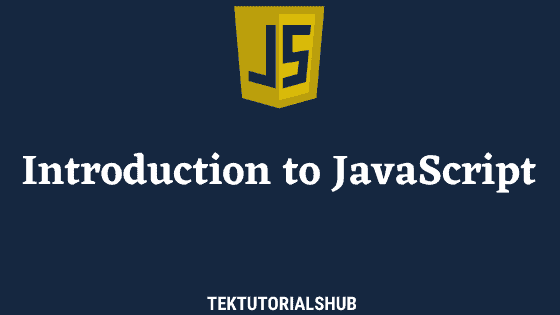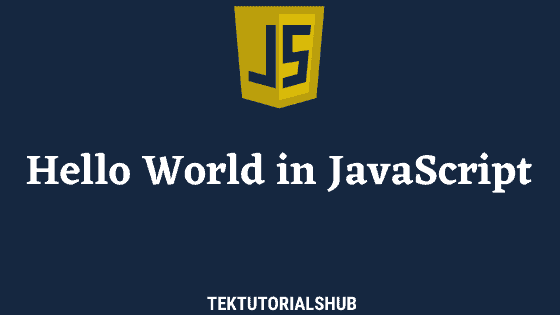We define variables in JavaScript using let, var, or const. In this article let us explore each of them and find out the difference between let vs var vs const. Knowing the difference between them is makes it easier to decide what to use where and when.
Table of Contents
Using Let, Var & Const
The following example shows how to declare a variable using the let var & const keywords. You can create variables without an initial value
1 2 3 4 5 6 | var message1; let message2; //const does not support creating a variable without initial value. |
or you can create them with an initial value.
1 2 3 4 5 | var message1 ="Hello" let message2 ="hi" const message3= "Hello World" |
Difference between Let vs Var vs Const
Variable Scope
The scope or visibility of the variable is the major difference between these keywords.
The scope is a region of the program where a variable is visible. Every variable we define will become part of a scope. We can access that variable only within its scope.
JavaScript creates four Scopes. They are Global Scope, Function Scope, Block Scope & Module Scope.
We can access the variable only inside the scope in which we declare it. We cannot access it outside the scope
var is function scoped
The variables we declare using var inside a function are only available within that function. If we declare them outside the function, then they are available everywhere i.e. they are a global variable.
Even if we declare a var variable inside a code block, they are still scoped to the enclosing function. If there is no enclosing function, then they will become a global variable.
For Example, in the following code. variable localVar is declared inside the if block, but you can refer to it anywhere inside the function in which it is defined. That includes nested functions or other code blocks. But you cannot refer to it outside the function.
1 2 3 4 5 6 7 8 9 10 11 12 13 14 15 16 17 18 19 20 21 22 | function someFn() { if (true) { //defined locally //Its scope ends where curly braces ends var localVar=1000 console.log(localVar) //ok } console.log(localVar) //ok function nested() { console.log(localVar) //ok } } console.log(localVar) //error |
let & const are block scoped
The variables declared using let or const are block-scoped. They are scoped to the block in which we declare them. A code block is anything inside curly parentheses. For Example, if condition, try/catch/ block, while loop, for loop, function, etc.
This means that we can only use it in the code block where we declare them. Outside the code block, they are invisible
If they are outside the code block, but within the function body then they become function scoped.
If they are outside the function and code block, then they are available globally or become a global variable.
For Example, change the variable type of localVar to let. You will JavaScript immediately throws an error in all instances where they are outside the if block.
1 2 3 4 5 6 7 8 9 10 11 12 13 14 15 16 17 18 19 20 21 22 | function someFn() { if (true) { //defined locally //Its scope ends where curly braces ends let localVar=1000 console.log(localVar) } console.log(localVar) //error function nested() { console.log(localVar) //error } } console.log(localVar) //error |
We can redeclare a var variable
We can redeclare or redefine a var variable.
For Example, here we are declaring MaxTry variable twice. The JavaScript does not complain and the code works perfectly. Note that we even changed the value from number to string.
1 2 3 4 5 6 7 | var MaxTry=10; console.log(MaxTry); var MaxTry="hundred"; //No Error here even if we are declaring it again console.log(MaxTry); |
But we cannot use the let or const to redeclare a variable.
The following example tries to redeclare a variable that is already declared with var. Identifier 'MaxTry' has already been declared is thrown by JavaScript here
1 2 3 4 5 6 7 | var MaxTry=10; console.log(MaxTry); let MaxTry="hundred"; //Uncaught SyntaxError: Identifier 'MaxTry' has already been declared console.log(MaxTry); |
The same goes if you try to redeclare a let variable with var
1 2 3 4 5 6 7 | let MaxTry=10; console.log(MaxTry); var MaxTry="hundred"; //Uncaught SyntaxError: Identifier 'MaxTry' has already been declared console.log(MaxTry); |
Var can be accessed before they are declared
We can access the var variable, even before we declare them.
This is because the JavaScript compiler process all variable declarations before executing any code. Hence declaring a variable anywhere in the code, is equivalent to declaring it at the top of the scope. This is called variable hoisting.
1 2 3 4 | console.log(testVar); //undefined var testVar="hello"; |
Now, change var to let. Compile and run the code. The code throws an error
1 2 3 4 | console.log(testVar); //ReferenceError: testVar is not defined let testVar="hello"; |
Const cannot be reassigned
We must declare a const variable with an initial value. The value cannot be reassigned again.
1 2 3 4 | const MaxTry=10 ; MaxTry=5; //Error |
Global Variables
If we declare a variable outside the scope, then it will become a global variable.
1 2 3 4 5 6 7 | let glet = "Global let"; var gVar = "Global var"; console.log(glet) //Global let console.log(gVar) //Global var |
But there is a difference in how JavaScript creates them.
The global variable using the var keyword becomes property of the global object. The name of the global object in the browser environment is window. You can also access the global object using the property globalThis. Hence we can use global object to access any global variable created by var keyword.
But global variables using the let (or const) keyword does not become the property of the global object. Hence we cannot access them using the global object
1 2 3 4 5 6 7 8 9 10 11 12 13 14 15 16 | var gVar = "Global var"; console.log(gVar) //Global var console.log(globalThis.gVar) //Global var console.log(window.gVar) //Global var let glet = "Global let"; console.log(glet) //Global let //The following codes does not work console.log(globalThis.glet) //Undefined console.log(window.glet) //Undefined |
let, var & const. Which one to choose?
Now, we know the difference between let, var & const. So the question is which one will you choose.
Const is always the first choice, if the value of the variable does not change once initialized. This will prevent some programmers from accidentally modifying the value, which can happen if you use var or let
let is the choice of all other variables. Because let & const are block-scoped. You do not have to worry about variables declared in for loop or if the statement is overwritten outside the block. block scope helps us to identify bugs and makes our code easier to read.
Avoid var. The var can be redefined, can be reassigned, and does not support block scope. This makes the code harder to read & debug.


